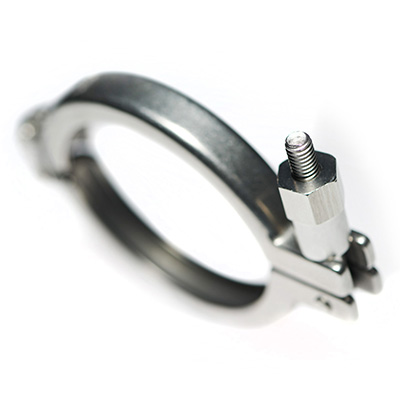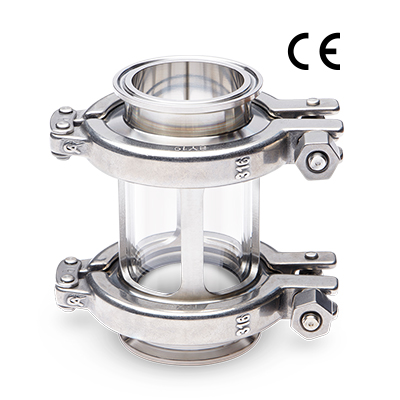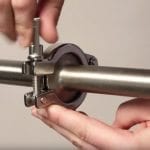
Posts by: Jeremy Sheldon
Jeremy Sheldon is Director of Life Sciences for LJ Star, responsible for working with customers in the Life Science industry for North America. Jeremy works with customers to offer the latest in sterile/sanitary technologies. Jeremy’s background includes a variety of sales and sales management positions within the life science industry.Increase your ROI on Sight Glass Windows Using These Tips
Materials traceability is becoming an essential business practice to trace and certify sources for all parts and processes. It enables companies to track production, monitor issues, control recalls, or order replacement parts more easily. It helps highlight the importance of material selection at a project’s beginning or during the design phase.
Presenting the pros and cons for biopharmaceutical processing
Single use technologies (SUTs) entered the biopharmaceutical industry in the 1990s, and processors were quick to take advantage of this alternative to traditional stainless-steel tanks /equipment for production lines. Single use production runs a process through equipment one-time using high-performance polymers for disposable components that have been sterilized using gamma irradiation. Over time, companies have sifted through the pros and cons of both types of technologies, SUTs and stainless steel, to determine the best options for business operations.
Process Observation Solutions: LJ Star Design Capabilities Enable Sight Glass Window Customization
The best process observation window might not be in a catalogue or sitting on a warehouse shelf. It might exist as an idealistic drawing on the back of a napkin. Or the opposite of ideal might be expressed in an email, as mounting frustration related to sight glass windows that repeatedly fail, bringing production to a halt and necessitating continual replacement orders.
The team at LJ Star can help guide the process of designing and fabricating custom orders for sight glass windows to make it easy for you to turn idealistic concepts into viable reality and end your frustrations. We can help analyze your process observation parameters and work collaboratively on a new design that best fits the needs of your operation. Getting started, it helps to understand some of the factors that demand a custom approach and which options can get the sight glass observation port from a sketch into operation.
Twinsburg, OH – February 22, 2021 – LJ Star offers a line of Anti-Galling Clamps that are specially designed to prevent the adhesion of materials due to friction and to keep processes running smoothly. The full line of Anti-Gall Clamps is produced to the highest hygienic engineering standards and are constantly being updated based on customer feedback and industry requirements.
“If galling occurs on a sanitary clamp, the nut and bolt fuse together so the operator can’t easily remove the clamp,” explained LJ Star National Sales Manager Jeremy Sheldon. “Quite often, the operator would have to cut off the clamp to remove it. This would
Are you working in a highly explosive environment? Even the most demanding applications still require reliable process monitoring in order to keep operations safe and compliant. Without high-quality process viewing equipment, you could be putting your workers and products at risk.
 Eliminate Clamp Galling
Eliminate Clamp Galling
Pharmaceutical applications require hygienic environments. Companies involved in pharmaceutical production must ensure tight controls on product purity through every stage of the development process, from manufacturing and quality control to packaging and shipping. Due to the tight restrictions that the FDA and other
 Eliminate threads and gasket compression problems that lead to contamination with this innovative new solution from LJ Star. Designed for hygienic/sterile applications in pharmaceutical, food/beverage, brewery and biotech industries, the new Clamp Type Sterile Visual Flow Indicator, or CT-SVFI, uses a patent-pending design to prevent the o-ring and gasket compression issues that lead to contamination associated with conventional screwed or threaded fittings.
Eliminate threads and gasket compression problems that lead to contamination with this innovative new solution from LJ Star. Designed for hygienic/sterile applications in pharmaceutical, food/beverage, brewery and biotech industries, the new Clamp Type Sterile Visual Flow Indicator, or CT-SVFI, uses a patent-pending design to prevent the o-ring and gasket compression issues that lead to contamination associated with conventional screwed or threaded fittings.
Keeping a Firm Grip on Sanitary Clamp Safety
For pharmaceutical and biotech companies, maintaining sterile process control is an ever-increasing challenge – one that can lead to cross-contamination, short term loss of product, long term drug shortages, lawsuits and even loss of life should sterile process be breached.
Gabe Montgomery, Engineering Manager, Tank Components Industries, an L.J. Star subsidiary located in Springfield, Missouri, is one of several L. J. Star engineers to serve on important ASME Bioprocessing Equipment (BPE) Committees. His work on the committee is part of the company’s contribution to advancing the technologies that shape our industry and to keep our customers informed on changes in the field. BPE held several meetings in San Diego, California in May 2018, and Gabe reports back on what he heard:
 For my pharmaceutical and biotech customers, sanitary clamps (also called hygienic clamps) keep systems clean while allowing quick disconnects. However, making reliable process system connections is anything but routine. If it isn’t done just right,
For my pharmaceutical and biotech customers, sanitary clamps (also called hygienic clamps) keep systems clean while allowing quick disconnects. However, making reliable process system connections is anything but routine. If it isn’t done just right,
Why Preventing Sanitary Clamp Galling Is Crucial to Product Purity
All makers of pharmaceuticals and biotechnology products have many concerns in common, but none is more critical than maintaining tight control over product purity during manufacturing and packaging. For example, if contamination were to compromise the integrity of a single batch of insulin, it could easily mean a loss of hundreds of thousands or millions of dollars in revenue to the manufacturer.
Recently, managers at a major U.S. pharmaceutical manufacturer were reminded of the importance of constant vigilance in their containment systems when they discovered leaks in sanitary clamp connections that forced them to scrap costly process media.
In a pharmaceutical or biotechnology setting, process equipment and piping are connected using a stainless steel sanitary clamp that forces together two ferrules, whose raised lips on the pipe ends facilitate a tight connection. Sanitary fittings are made specifically for pharmaceutical applications, where joint cleanliness and access are of paramount importance. Clamps allow quick disassembly for cleaning and sterilization. To prevent the formation of shelves or pockets that can harbor bacteria the ferrules, gasket and clamp must also provide a non-protruding, recess-less product contact surface.